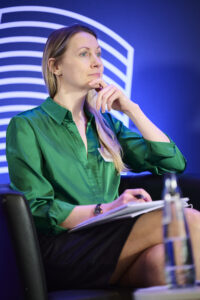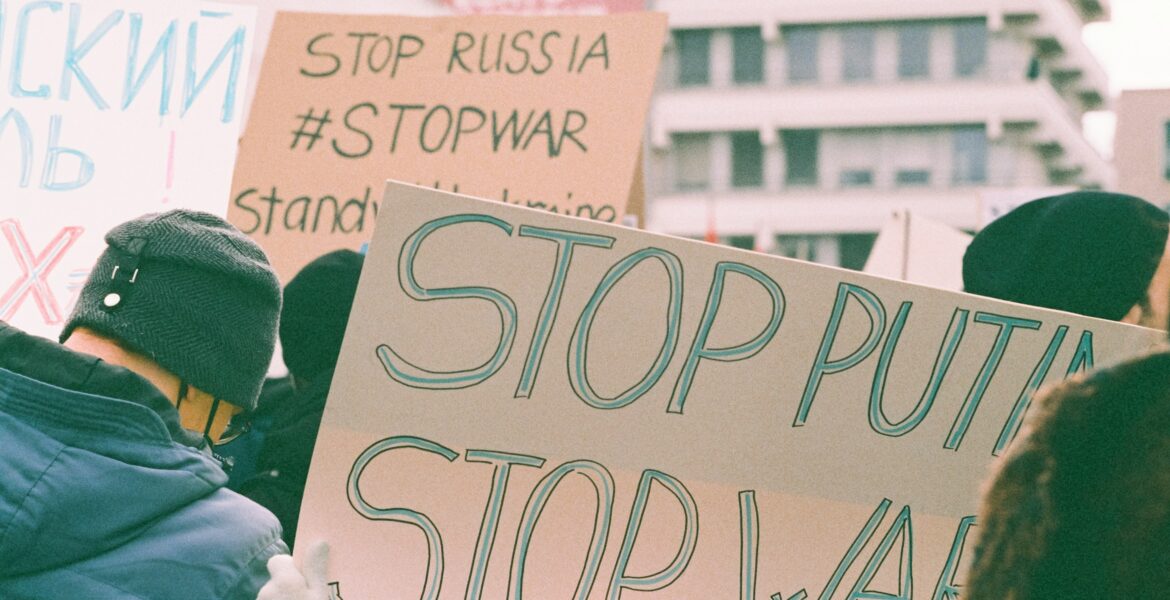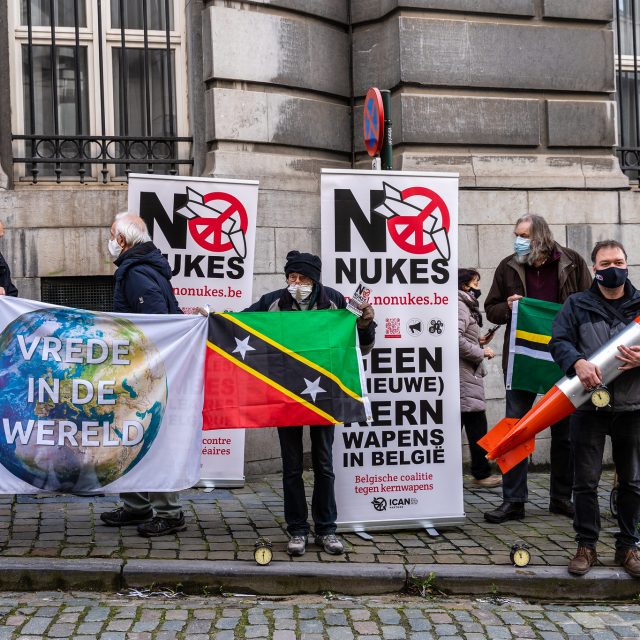Photo by Markus Spiske on Unsplash
It is everyone’s right to know how to prepare for and survive crisis and war when the unthinkable happens, writes Maria Martisiute.
As security is the foundation of everything, according to the recent high-level EU report by the former Finnish President Niinistö, then civil preparedness is the foundation of every citizen’s rights.
Europe and NATO have long been confronted with a major war and multiple transnational crises in and around their territory: Russia’s war against Ukraine, infrastructure attacks, cyberattacks, forced migration, election interference and disinformation, as well as wildfires, floods, the pandemic and security of supply risks.
In the run up to Christmas 2024, NATO urged to shift to a wartime mindset with regards to readiness and preparedness, around the time that the critical infrastructure of NATO and the EU member states was attacked in the Baltic Sea for a third time in four weeks.
Some national security authorities in the UK, Poland and Germany estimate that war with Russia could commence by 2027-2029. Yet Europe and NATO are already in an undeclared war with Russia on multiple fronts.
One might expect that national as well as international institutions such as NATO and the EU automatically protect citizens. But the reality is more nuanced, for three reasons.
First, despite the progress made in strengthening resilience, national authorities, the EU and NATO are struggling to deter and prevent attacks in and around their territory, leading to their proliferation and more war in Ukraine. If 2025 proceeds with a ceasefire as opposed to victory in Ukraine, the undeclared war with Russia will be pronounced sooner, with core values and human rights buried in death pits.
Second, experience demands that when security and political stability are imperilled, institutions themselves need to be defended, with risk-informed and resilient society on their side as the backbone of the effort. The Niinistö Report makes clear that civil participation is a necessity that is inextricably linked to sustaining vital societal and institutional functions in any crisis, including armed aggression. This requires, as a matter of urgency, ensuring that citizens are well informed and equipped for every eventuality.
Third, it is not just the institutions, infrastructure or information networks that are under attack, but also European lives, fundamental rights and freedoms. NATO warned recently of a real prospect of Russia’s hybrid attacks causing substantial casualties or very substantial economic damage. That is why citizens must be provided with more than a general understanding of civil preparedness; citizens must be shown in advance how preparedness applies to their lives in practice for the continuity of essential services and for the enjoyment of their rights and freedoms.
The preparedness of Europe as a whole is inadequate in the face of the deteriorating security situation: many member states of the EU and NATO are just waking up to civil preparedness while others seem to find excuses to do so, despite the provisions of Article 3 (resilience) and Article 5 (collective defence) of the North Atlantic Treaty.
Consider Belgium, the host nation of the EU institutions and NATO Headquarters. Belgian Minister of Justice Paul Van Tigchelt said recently that to prepare the population for emergencies such as war is premature without first investing in security. However, the two are not mutually exclusive: civil preparedness is an investment in security and must be integrated in Belgium’s civil-military defence expenditure.
Germany is another example. German Chancellor Olaf Scholz continues the risk of escalation narrative and recently established communication with Russian President Vladimir Putin for domestic electoral purposes. The latter action alone undermines the Euro-Atlantic war effort and shows a lack of confidence in leadership. Moreover, data shows that roughly 50% of Germans agree with, or are indifferent to, the statement that NATO provoked Russia’s invasion of Ukraine, suggesting that the German population has been misled about the threats facing Germany, Europe and NATO.
This reality means that Europe is an attractive target for foreign adversaries.It also means that it must be demanded from leaders from across Europe, the EU and NATO that they integrate civil dimensions to future-oriented defence and security initiatives including the White Paper on the future of European defence, EU Preparedness Union Strategy, Poland’s Presidency of the Council of the EU, and the 2025 NATO Summit in Hague, involving the following steps:
Approach and enshrine civil preparedness as a basic right in national, European and international law, alongside the already existing rights to freedom, to property, to housing, to business, to education, to asylum and others.
Ensure that investment into civil preparedness is reflected in civil-military defence expenditures at all levels, with new capital injected in the EU’s next 2028-2034 Multiannual Financial Framework for this purpose.
Engage in an active conversation and debate with citizens about the threats facing Europe, explain what is being done to defend Europe and what more is required at European, national, regional and local levels, and why.
Inform citizens about their rights and duties in case of emergency, crisis and war, including the worst case scenario, for example, by publishing a preparedness guide that is easily accessible to the whole population; and create links with civil organisations, local communities and the private sector to enable a whole-of-society approach.
Explain to citizens why and how they can get involved in building security awareness in practice in households, workplaces, schools, villages, cities, and across borders. Let them know that this is not alarmist but an imperative for knowing how to prevent and survive crisis, for example for 72 hours without electricity, heat, water and food.
Involve society and businesses in military-supported trainings and exercises dedicated to simulating scenarios of crises and war, and apply lessons learned from Ukraine.
Introduce civil preparedness education as part of the school curriculum to foster understanding, critical thinking and skills on preparedness from a young age.
Tailor preparedness to the most vulnerable: the elderly, the disabled and hospitalised, children, pregnant women, single and separated parents, and migrants.
Civil preparedness is not a privilege – it is a civil and military necessity. To build a resilient Europe, leaders and citizens must cultivate trust about the threats that Europe faces, however uncomfortable it may be. It is about giving everyone a basic right to prepare and to know how to survive crisis and war.
 |
Maria Martisiute is a Policy Analyst at the European Policy Centre focusing on transnationalisation and strategic analysis.
|




